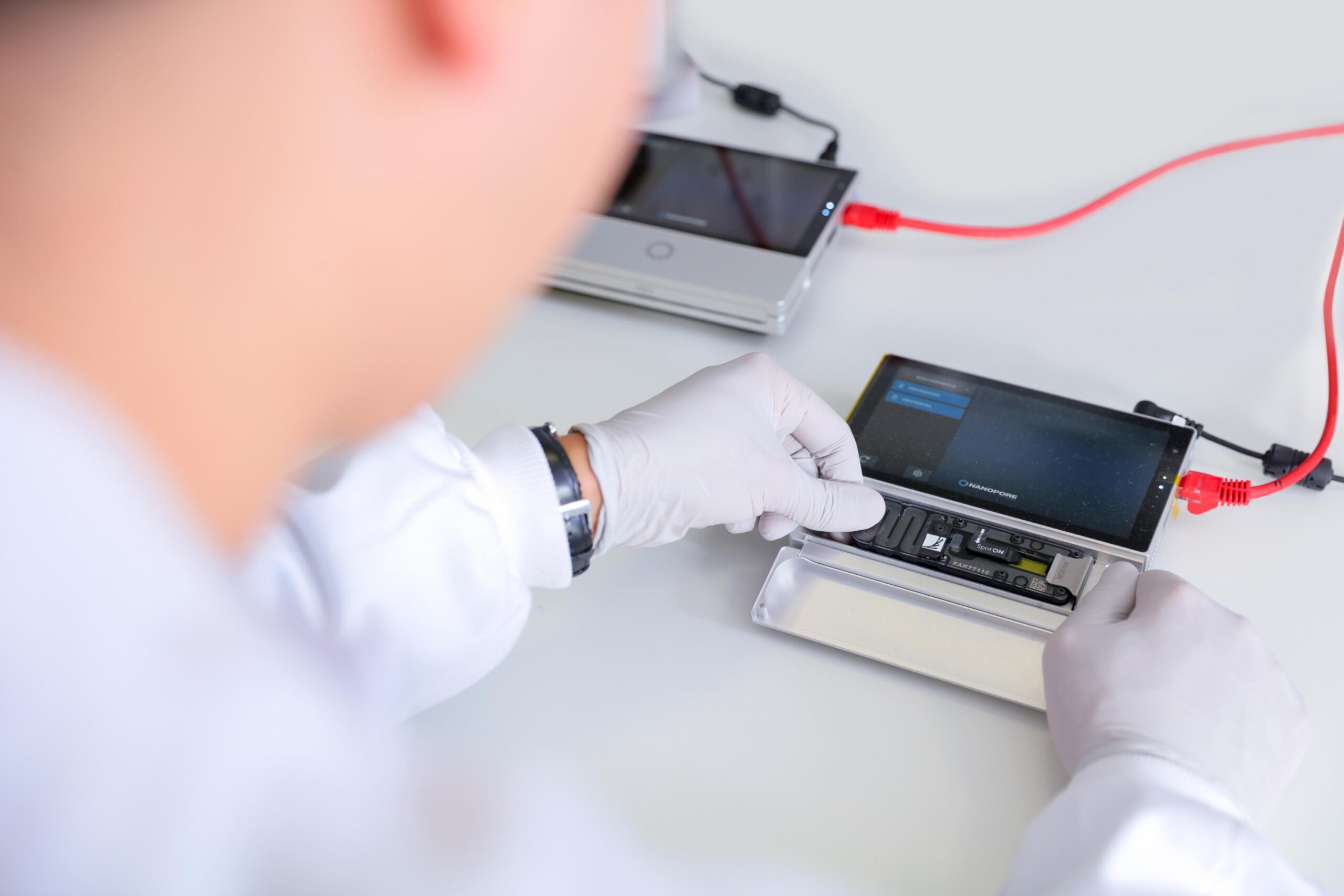
British biotech startup Oxford Nanopore is planning to list in London this year. The planned initial public offering (IPO) is expected to value the company at £2.5 to £4bn.
Oxford Nanopore’s decision to list on the London Stock Exchange will be seen as a boost for the City, with life science technology companies traditionally opting for the US Nasdaq exchange.
On 28 September Oxford Nanopore priced its shares at 425p, giving it a valuation of about £3.6bn.
Oxford Nanopore provides portable hardware for low-cost rapid analysis of DNA and RNA in human, animal and plant molecules, as well as soil and water. Its offerings range from portable “pocked-sized” devices to more advanced, industrial benchtop machines.
The technology’s versatility has seen it used by researchers in crop science, cancer research, environmental analysis, and viral outbreak surveillance. Use of Oxford Nanopore sequencers has boomed during the pandemic, as they are used to identify and track the spread of Covid-19 variants around the world. The company said it has sequenced 18% of all coronavirus genomes globally.
Its mission is to “enable the analysis of anything, by anyone, anywhere”.

US Tariffs are shifting - will you react or anticipate?
Don’t let policy changes catch you off guard. Stay proactive with real-time data and expert analysis.
By GlobalDataOxford Nanopore said it will use proceeds from the IPO, confirmed on Thursday, to expand in a DNA/RNA sequencing market estimated to be worth $5.7bn this year.
“We believe Oxford Nanopore is ideally suited to both disrupt existing markets and create entirely new ones,” said Oxford Nanopore CEO Dr Gordon Sanghera. “An IPO will be a step on the journey to make our vision a reality, supporting our ambitious growth plans and enhancing our ability to innovate and grow.”
Executives at Oxford Nanopore are in line for an estimated £100m windfall from the float. It is proposing dual-class share structure to help management fend off any unwanted takeovers. The IPO has received backing from Oracle, with the tech giant to buy $207m shares.
Founded in 2005 as a University of Oxford spinout, Oxford Nanopore started commercial activities in 2015. Its technology sequences DNA by measuring changes in electrical current as a nucleic acid is passed through a protein nanopore.
In its intention to IPO filing, it pointed to its “starter pack” handheld device MinION – available for around $1,000 – reducing the barriers to entry for researchers.
At the other end of the spectrum, desktop-sized PromethION is available at $395,000 and can sequence an entire human genome in two hours – a feat that first took 13 years for the Human Genome Project to complete.
Its sequencing devices uses Nvidia graphics processing units for the high-intensity computing required to crunch the genetic data.
Oxford Nanopore’s IPO plans come at a period of high growth for the company. In 2020 it brought in revenue of £114m but ran at a loss of £61m. But its revenues have been growing consistently since 2018 and that trend has continued into 2021, having brought in £52.6m between January and June with a gross profit of £26.9m.
Its largest rival is US-based Illumina, which has a current market cap of $67.37bn.
Oxford Nanopore has built up an intellectual property portfolio of more than 2,000 issued patents in the field of nanopore-based sensing. It has 17,000 individual members using its technology who provide feedback to help make improvements. The company is headquartered in Oxford but has offices in Cambridge, New York, San Francisco, Singapore and Beijing. It employs around 600 people.
Oxford Nanopore’s IPO is expected to be among the largest London listings this year, which have launched with mixed levels of success as the government seeks to persuade tech companies to list in the UK over the US.
Food delivery app Deliveroo, microchip designer Alphawave and cybersecurity firm Darktrace all initially underwhelmed investors in highly anticipated listings.
However, fintech giant Wise’s direct listing provided some welcome good news for the City, opening with an £8bn valuation.







